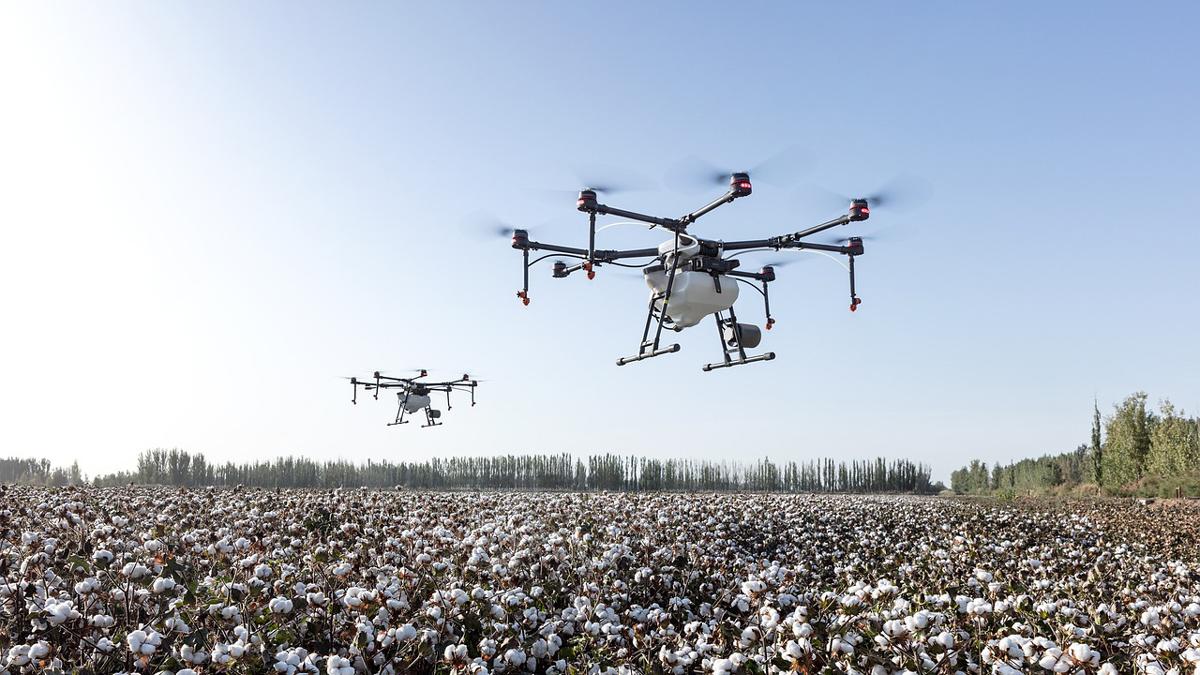Medical drone delivery set for global take off

Delivery by drone is often talked about in the retail sector – to make delivery of consumer goods quicker and with greater convenience. However, Ben Hargreaves finds that the advantages for medical delivery could save lives, and become an essential part of healthcare logistics in the not-too-distant future.
The rapid advance of technology is resulting in major changes in the way the healthcare industry operates. Artificial intelligence is already becoming an important feature of drug delivery, and is also being used in the manufacturing space. Digital health has rapidly become a significant part of the delivery of certain medicines and care, especially during the pandemic. Researchers’ ability to conduct rapid and low-cost gene sequencing has also brought about treatment possibilities for a broad range of diseases that otherwise would have had no option for improvement.
By comparison, medicine delivery seems an unexciting area for technology to be applied to, but the ability to efficiently transport treatments can make the difference between life and death. The development of drone delivery could mean just that for certain parts of the world, where access to treatments is limited by the logistics of reaching rural or unconnected areas. In richer countries, drones could provide convenience in delivering treatments, and leverage automation to make the process more efficient.
Reaching out
Drone delivery of medicine is still in its early stages of being rolled out. There is no question that the technology is not yet mature enough to become a dominant means of transporting goods around major cities. However, when there is a clear need for a solution in delivery, then the demand will be met once the technology is suitably capable.
The most obvious example where there has been a pressing need is to connect regions, towns, and countries where the logistics of reaching rural places is impractical or too slow by traditional means. One such effort has been the work of Zipline, a company that refers to itself as the world’s largest autonomous delivery system, which has used its drone capabilities to deliver medical goods in remote areas in Africa.
A recent project saw Zipline partner with Pfizer to deliver the latter’s COVID-19 vaccine to rural parts of Ghana. Reaching areas of rural Africa has been noted as one of the major challenges in the rollout of new vaccines across the continent. This is largely due to the infrastructure and distribution barriers that exist, particularly when a cold chain process is required to maintain the efficacy of vaccines. The partnership allowed the two companies to test the end-to-end supply chain from a manufacturing facility in Europe to a ‘last-mile’ health post in rural Ghana.
The process involved the vaccine being transported in thermal shippers by air from Belgium to Ghana, where they were then distributed to Zipline’s remote centres. Once logged and transferred to ultra-low temperature freezers, Zipline could deliver the vaccines by autonomous aircraft, equipped with thermal packaging, to the country’s hardest-to-reach health clinics.
Zipline has been operating in Ghana for over four years, where it has six distribution centres. The reality of drone delivery has been realised in the country - where the company is able to deliver anti-venom, fresh frozen plasma, vaccines, and other products - with the capability to deliver more than 2,300 products in total.
Testing ground
The appeal of employing drone delivery is not restricted to countries with remote, rural populations. The biggest companies in the world have an interest in successfully deploying drone delivery due to the practical convenience that could be achieved. Wing, a drone delivery service owned by Alphabet, recently agreed to partner with Apian to create a medical drone delivery service in Ireland. The partnership expects to begin working with hospitals and other care providers later in 2023, after announcing their cooperation in August.
The plan is to work with healthcare and pharmacy partners to create a ‘rapid medical delivery network’ in South Dublin, which will combine Wing’s aircraft and automation with Apian’s healthcare logistics, thereby creating a fully-automated, on-demand delivery system.
A spokesperson for Wing explained why the company had selected Dublin as the site for its partnership: “Wing already had a footprint in Co. Dublin, and Ireland has been a welcome home for drone technology in Europe and a great incubator for future innovations. We greatly appreciate the collaboration we’ve had with regulators, and we look forward to our next steps in South Dublin.”
In terms of what advantages the partnership will offer, the spokesperson said that the medical drone delivery service would be able to reduce emissions with electric planes, avoid ground traffic, take advantage of automation to offer more economical delivery for small items, and improve patient experience with reduced wait times.
Global drone delivery network
The expansion of drone delivery is now happening rapidly, and on a global scale. Across the water from Ireland, it was announced last year that cancer drugs would be flown from Portsmouth, UK, to St. Mary’s Hospital on the Isle of Wight. There is no bridge connecting the Isle of Wight to mainland England, and therefore it is far quicker to transport such treatments by drone compared to traditional methods. According to Apian, which supplied the drones for the tests, the delivery time would be reduced from four hours to 30 minutes.
The same process is rapidly scaling in the US, where four years ago a subsidiary of UPS gained regulatory clearance for a medical drone delivery services to support hospitals across the nation. Similarly, Wing also has operations in the US, and has a partnership with Walgreens in Dallas, Texas, for the delivery of medical items. Beyond the States, Wing also says that it runs deliveries across three continents.
The spokesperson commented: “Wing is excited to continue its global healthcare work with this partnership […] Drone delivery is fast, safe, and sustainable, and we see a natural fit for healthcare applications of our services long-term. In addition to starting these operations in Ireland, we are exploring opportunities in partnership with Apian and the UK regulators.”
According to crunchbase, funding is flowing into start-ups working in the area, which belies the general trend that has seen capital dry up in other start-up areas, such as biotech. With the funding and advantages of drone delivery being clear, the question will be one of when, rather than whether, this means of delivery will officially take off.












